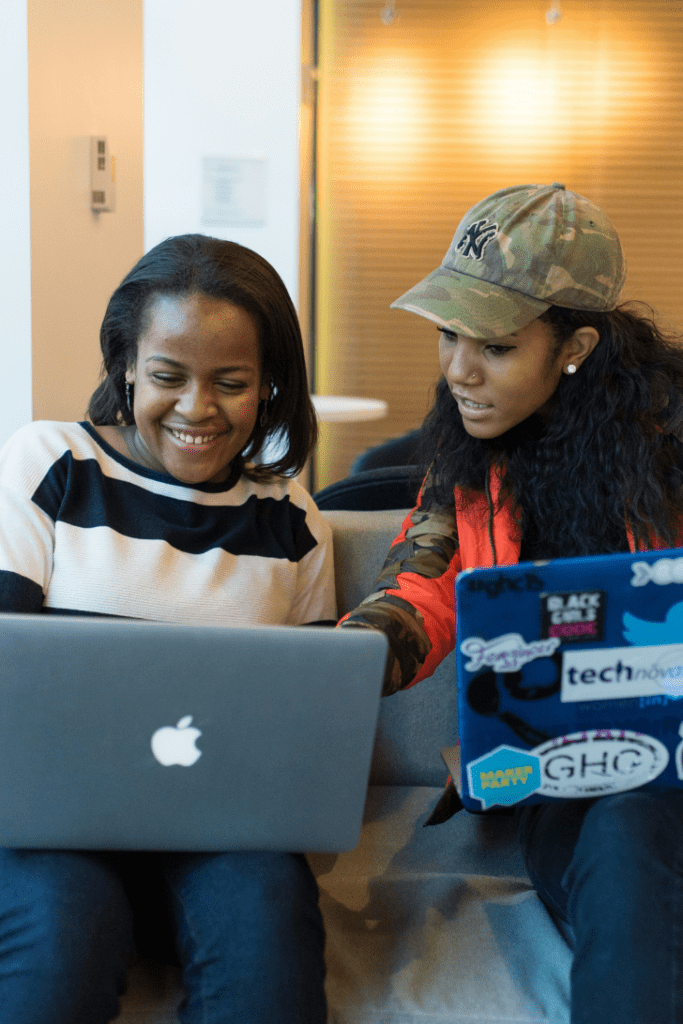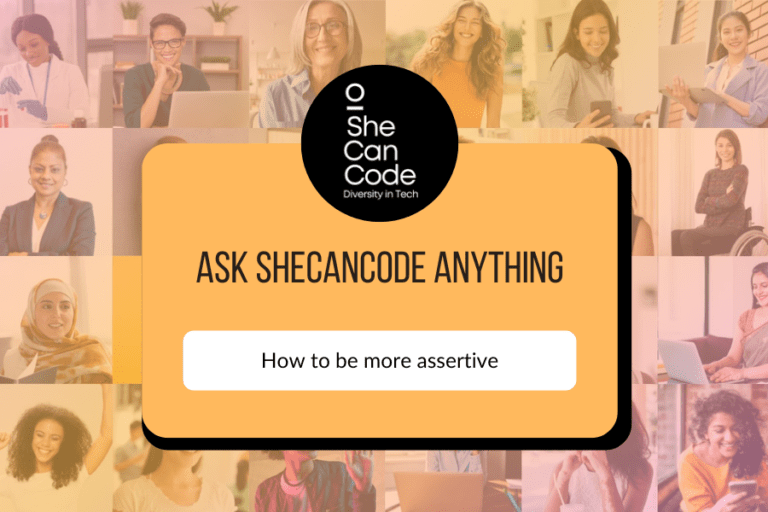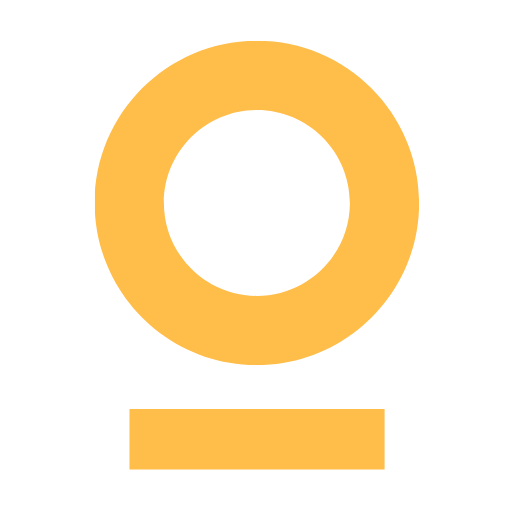They did it — so can you
If you’re here because you found yourself at the beginning of your self-taught programming journey, or you’re in the middle of it and starting to doubt yourself, use these stories to motivate you. If not, enjoy the stories of these 10 developers who stayed resilient through a path less travelled.
The path of a self-taught developer is arduous and rich with exhausting unpredictability. There is no one-track-fits-all from coding newbie to a career developer. With this, there are so many unique stories that have been told by self-taught programmers who went on to be full-time developers.
For this reason, I’ve gathered a collection of these stories from here on Medium. The authors are people like you and me, they’ve fought their way to their ultimate goal — finding a job as a self-taught programmer. I hope reading about these experiences will help you reflect on your past and present, and motivate, inspire, and encourage you going forward, as they did me. You’re not alone!
Note: there’s a summary at the bottom of this blog highlighting key lessons from the following stories.
1. How I Became a Self-Taught Software Engineer at a Major Tech Company by Lexis Hanson

Lexis Hanson went to college majoring in Business and Finance. She went on to a great career in customer success but she felt she wasn’t challenging herself enough in the work she was doing. However, she missed the feeling of building things — she has always been interested in logic, numbers, and critical thinking.
Lexis decided to sign up for a RailsBridge workshop and loved every minute of it. Soon after, a software engineer friend pointed her to some of their favorite online learning resources and the spark was ignited. When she finally got to the job application process, she was rejected several times. However, she stuck with it and ultimately had her choice of three really great engineering offers — one from a FAANG company, one from a startup, and one from the company she was already working for.
How did she do it?
She networked like hell, mastered one language, was consistent with the time she spent on programming, shortlisted her best resources, stayed persistent and found others to learn with.
2. How I Went From Mopping Floors at a Tanning Salon to Becoming a Software Developer by Nnenna

Nnenna grew up playing video games, reading sci-fi books, illustrating, writing stories, composing music, playing horn instruments obnoxiously loud, and studying any subject she found and deemed intriguing. She attended George Washington University to study Economics in 2016 and experienced a slew of never-ending relocation sprees which led to her putting her Bachelor’s degree on hold. To keep busy and keep up with bills she became a tanning consultant.
While on a closing shift, she had an epiphany — that she would never return to the tanning salon again. She quit her job, called her aunt, an accomplished professor of computer science and computer information systems in Boston, and asked her if she could stay with her. She said yes and booked a plane ticket with the money she had left.
Boston was her chance to start over fresh with what she wanted to be and do for herself. She had a foreshadowing moment when she reached out to someone she knew who had graduated from the University of Houston with a degree in Biology, but saw himself getting into iOS development. He went to a bootcamp and got a job as an iOS developer without a degree. She was inspired by this, so she began her own self-taught journey! Ultimately, her curiosity and passion for the intersection of self-education and technology led her to O’Reilly Media as a software engineer, building out innovative experiences on their online learning platform.
How did she do it?
She accepted any challenge that came her way, never stopped learning, believed in herself, joined a 14-week coding bootcamp, used free online resources and networked with those around her and on Meetup.com.
3. Breaking Into Tech: No College Degree Required by Jason Wang

Jason Wang is the son of first-generation immigrants who came to America in search of a better life. He attended university for nursing, switched majors to international business and then decided to drop out in his third year. Afterward, he moved to Seattle, worked odd jobs for the next three years and contemplated a leap of faith into tech. With the support of his parents and encouragement from friends, he finally decided to go all-in in the summer of 2018.
Through self-teaching and a bootcamp, he went from code newbie to tech internship to full-time software engineer in one year.
How did he do it?
He mastered algorithms and data structures, never stopped coding, networked, stayed professional, attended hackathons and never stopped believing in himself.
4. Lessons Learned From My Journey as a Self-Taught Developer by Victor Casson

Victor Casson was a senior in college who never had the intention of making a career out of programming. Walking between classes, an app idea hit him and he was convinced that he had found the next big thing. As he was losing interest in his major, he decided to use some of his free time to build it himself. He bought a few books on Android development, copy and pasted code, ultimately building an app that didn’t have many features and barely ran without crashing — only focusing on the end product.
It wasn’t until he accidentally got into a computer science class that he realized he should focus more on learning and eventually abandoned his app idea. Over time he corrected his behavior and took learning more seriously. He started to enjoy programming and eventually started a career as a software developer.
How did he do it?
He started to focus on the process, not the end result, built a strong foundation, befriended StackOverflow, crafted a distraction-free work/study environment and networked on Meetup.com.
5. How Did I Land My First Job as a Self-Taught Developer? I Prepared Like Crazy by Jonathan Puc

Jonathan Puc was the typical teen forced to make one of the most important decisions of his life towards the end of high school — what he wanted to study in college. He decided to pursue a degree in supply chain and logistics. During the two years he spent at university he was uneasy and thought the unhappiness and taste of dissatisfaction was something normal for a young adult in university.
The real problem was that he hadn’t found something to truly be passionate about. Just before the start of his third year, he discovered the world of self-development, and programming shortly after. He ended up landing a job interview at a growing startup — his first and only sit-down with an actual company — and was successful.
How did he do it?
He coded every day, set goals for himself, jumped toward any opportunity to learn, built his personal brand, and always remembered one quote:
Give me six hours to chop down a tree and I will spend the first four sharpening the axe.
Abraham Lincoln
6. I’m a Self-Taught Developer and I Used These Free Resources to Land My First Job by Anton Ödman

Anton Ödman, like many others, worked a standard 9–5 job with hopes of someday changing career paths. Without quitting his job, he practiced and learned how to code in his spare time. After two years, he finally landed his first job as a developer.
How did he do this?
He managed to pull it all off without spending a dime! He was resourceful and used the many great free online resources out there to teach him to code, grasped the fundamentals, learned by doing, and joined blogging and Reddit communities.
7. A Self Taught Programmer’s Journey by Amit Shekhar

Amit Shekhar graduated from IIT with a civil engineering degree. He felt as if he wasted four years of his life, but would always remind himself that he learned valuable problem-solving skills in college. Internally, he always had an interest in knowing how software works and at the end of 2014, he started reading about programming for the first time from the Head First Java Book.
Fortunately, within a month he was hired by a startup in New Delhi, India. The interview was completely based on problem-solving skills. They interviewed him, gave him a project on Android and he successfully completed it.
How did he do it?
He learned by implementing, programmed on a daily basis, read open-source projects to learn, started a blog and to get a deeper understanding of what he learned, went to tech conferences and networked with other developers.
8. How I Went From Newbie to Software Engineer in 9 Months While Working Full Time by Austin Tackaberry

Austin Tackaberry graduated from a good university with a chemical engineering degree with a solid GPA. After college, he got a job as a Process Engineer at a refinery. He hadn’t done any programming outside of school, in high school or college, until he decided he wanted to change careers into software engineering.
After nine months and seven days of diving headfirst into programming with the intent of changing careers, he ended up receiving his first job offer.
How did he do it?
He made a plan, set goals for himself, got a solid base understanding of core computer science, went to meetups, contributed to open source projects and used free online resources to continue to learn.
9. 5 things I learned as a self-taught female developer by Stacy Goh

Stacy Goh was a business student immersed in the world of finance in the hopes of making a name for herself and joining the ranks of the rich. But she wasn’t satisfied with what she was doing and the impact she was making.
She left the finance industry and decided to intern in a mobile application startup where she learned the intricacies of digital marketing and how to bring a product to market. However, she still wasn’t satisfied. She wanted to make products that will make people’s lives better, so she started to learn to program so she could create her own products.
Two years later, she became a software developer and led developer relations at a tech company called Oikos.
How did she do it?
Finding her area of interest in technology, used online resources to self teach, created a to-do app after every framework she learned, read a lot, worked on side projects, and was patient.
10. How To Transition Into Tech With Self-Taught Skills by Joyce Akiko

Joyce Akiko chose a formal education before she knew what she really wanted to do. She graduated with a Psychology degree feeling stuck in a narrow range of career options. She went back to school for another two years and earned a graduate degree in Human Resources and quickly felt the same way she did right after undergrad. Restless, underutilized, and frustrated with her job options. She ended up teaching herself how to code.
Eventually, she was building websites for her friends and then for customers. Finally, she turned website development into a full-time freelance job and then later went into a career as a product director.
How did she do it?
If there was anything she couldn’t do, she learned how to do it. She found what she liked and stuck to it, never stopped learning, put what she learned into action, and built projects to solidify her skills.
Key Takeaways From Self-Taught Developers
In these stories, you’ll notice that there are a few common themes. These are principles that many of them put into practice in order for them to reach their goal.
Be resourceful
Recognize that just about everything you want to learn can be found online. A key to being a great developer is having the ability to solve problems and finding the answers on your own. Like Anton, he pulled off finding resources online and teaching himself without spending a dime! Take advantage of those free educational resources.
Never stop learning
The process of learning never leaves the world of a developer’s environment. A desire to learn is an asset that will fuel you throughout your life. There’s always something we can learn that will improve how we lead our lives and do our work. It’s also important that we engage, discuss, and experiment with the knowledge that we obtain. Like Amit, he learned by implementing, read open-source projects to learn and started a blog to get a deeper understanding of what he learned.
Build a Strong Foundation
Building a strong foundation in programming and problem-solving skills will distinguish the good from the great. The foundation of these skills, plus the concepts of programming, will enable you to tackle any problem or language that comes your way. Like Victor, he started to focus on the process not the end result and built a strong foundation in programming.
Set goals and stick to them
You must have a goal. It’s easy to let your learning drag on and on if you don’t have any external pressure pushing you. You need to create that pressure. You have to constantly have something to motivate you. Like Austin, once you have a goal, create a plan of attack and get after it and watch all the progress you’ll make.
Network
Networking can be very important to your success, you never know what can come from the people around you — most people in tech are very willing to help. Like Jason, meet as many professionals as you can. Attend Meetups, message random people on LinkedIn, visit a tech campus and approach every employee you see. Even set goals to meet a certain number of new people each week. Bring a notepad, ask questions and write down responses. These people are already where you want to be or on the same path as you — learn from them.
Be persistent
If all programmers gave up when things got difficult, there would be no programmers in the world. If you give up easily in the face of problems, you will never be successful. Like Lexis, when she finally got to the job application process, she got rejected many times. However, she stuck with it and ultimately she had her choice of three really great engineering offers — one from a FAANG company, one from a startup, and one from the company she was already working for.
Believe in yourself
You need to believe that you can do what you set your mind to. Believe that you can succeed. Don’t be affraid to believe that you can learn the skills necessary to become anything you want to be. Remember, believe in yourself and you can accomplish anything. Like Nnenna, she believed in herself through all the adversity, the stress, and anxiety, through putting a degree on hold, working at a tanning salon, quitting and setting her sights on programming. She made it by believing in herself.
Take action and never stop coding
When you start to learn the basics of programming and get the foundation you need, use what you learn and build some projects. Don’t get too caught up in learning everything you can all at once, put your new knowledge to work. The best way to learn is by practicing yourself. Like Joyce, she put what she learned to action and built many projects to solidify her skills.
What Should You Do Now?
Learn from these developers. Let their stories of success motivate you and prove to you that this too can be you. Are you able to apply any of their strategies to your own life? Did any of these stories spark an idea to try for yourself? If so, leave a comment below!
You're invited! Join SheCanCode's Women in Tech Community
Find a supportive network, opportunities, jobs & much more, so you can excel in your tech career.









